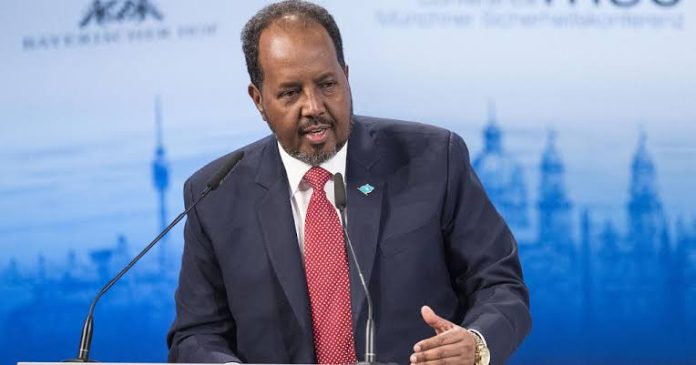Facebook Twitter (X) Instagram Somali Magazine - People's Magazine
Somali President Hassan Sheikh Mohamud is preparing to visit Beledweyne, the capital of the Hiiraan region, to address longstanding political disputes and community grievances within Hirshabelle State. This visit follows a significant breakthrough in discussions between federal authorities and local clan leaders, signaling a renewed focus on governance and stability in the region.
A high-profile federal delegation recently visited Beledweyne to engage in talks with the influential Hawadle clan leaders. This delegation included Army Chief General Odawaa Yusuf Raage and National Intelligence and Security Agency (NISA) Director Abdullahi Mohamed Ali Sanbaloolshe. As part of the negotiations, both sides reached an agreement to transfer the town’s security management to federal forces, aiming to de-escalate tensions and restore order in the area.
The President’s visit is expected to reinforce this agreement while allowing him to personally engage with the local community. His primary focus will be addressing grievances related to power-sharing arrangements and the broader political disputes within Hirshabelle State. The region has experienced ongoing tensions between the local community and the state administration, with concerns over representation, security management, and equitable resource distribution taking center stage.
Hiiraan MP Abdirahman Gurey called on local elders to prepare for a constructive dialogue with President Mohamud, emphasizing the federal government’s commitment to resolving the region’s challenges. Gurey noted that the President’s message was clear: the security of Beledweyne must be placed under federal control before formal negotiations on local governance and power-sharing can begin.
Beledweyne has faced persistent security challenges over the years, including factional rivalries, clan-based conflicts, and the presence of armed militias. These issues have hampered regional stability, weakened governance, and hindered development efforts. Federal officials have stressed the importance of centralizing security efforts under federal oversight to prevent further instability

